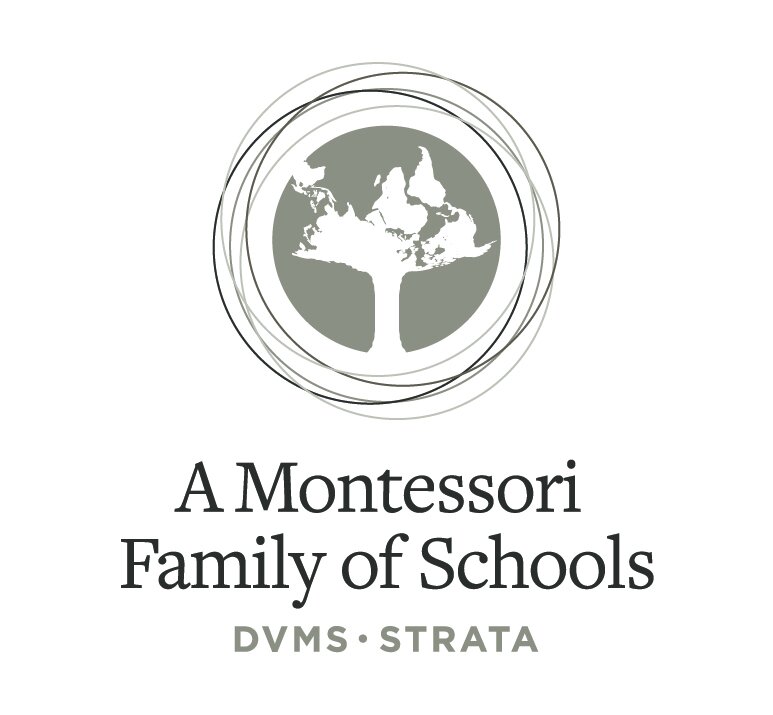Young Children’s Community
The YC Community at DVMS is a welcoming environment for children ages 18 to 36 months. As an extension of the home, we prepare an environment which nurtures the inherent capabilities found in all children in a warm and loving manner. Our program focuses on supporting the developing functional independence of the children including:
gross and fine motor skills
expressive and receptive language
socialization
positive discipline
toileting independence
self-expression through art and music
food preparation and communal dining
This environment serves the unique needs of the developing Toddler child. By living in community, we support the children’s healthy interactions and positive role-modelling as they build relationships with their peers, adults and their surroundings.
Children are most successful in this program when they begin before the age of 24 months. Please contact Admissions to arrange for a tour and observation.
Casa
Our Casa program is for children 3 to 6 years old. It revolves around a carefully prepared environment. This environment is child centered and allows the children a great deal of freedom within a reasonable set of boundaries. There is an emphasis on independence, allowing the children to become self-reliant and resilient. Children have a natural curiosity and drive to learn. Because they are allowed to choose their own work, it becomes joyful and purposeful, and they are able to learn at their own pace. Discipline is centered around respect, both for the other people in the room, and the materials within it.
The three year age mix creates a natural social group where the younger children look up to the older ones and the older ones become mentors to the younger ones. We create our own caring community where social conflict is expected and the children learn how to resolve their own problems with our help if necessary.
When children first enter the Casa classroom at the age of three, they begin work with Practical Life materials. These materials help the children develop the skills of everyday life. This work, although it seems simple, becomes the foundation for all other work that follows. Young children also work with the Sensorial materials which are designed to hone the child’s five senses. They become able to discriminate fine details such as subtle differences in colour. The language program begins with phonetic sounds and, in time, progresses to writing stories and reading books. Math starts with the all-important numbers 0-10. Once a solid knowledge of these numbers is obtained, we move into 4 digit decimal work focusing on the process of each of the four basic math operations. Activities in the Cultural area include geography, botany, zoology, music, and a very basic introduction to time. French is also a part of our curriculum.
Elementary
The Elementary classrooms at Dundas Valley Montessori School provide a carefully prepared environment to encourage independence, a sense of confidence, responsibility, and a desire to learn. Our environments provide students with the opportunity to follow their interests and reach their full potential. Students continue to learn in a multi-aged environment with the guide to assist them on their journey. With the use of Montessori materials, students are able to solidify concepts concretely before moving on to the abstract. Our curriculum is based in Mathematics, Language, Culture (geography, history, zoology and botany) as well as Art and Physical expression.
The idea that everything in the universe is connected is referred to as “Cosmic Education”. This is the approach that our Montessori Elementary programme embraces. This approach allows the students to understand that everything around them is interdependent and that they are a vital part of the universe they live in. During the start of the year, the students are presented a series of “Great Lessons.” One by one, the stories they are told introduce the different areas of the curriculum. The stories span the history of the universe from the creation of the solar system, early life on earth to the emergence of humans, and the rise of civilizations. These stories are told with timelines, impressionist charts and science experiments.
“Going out” is an important part of the Montessori elementary programme. Students have the opportunity to go into the community to visit museums, shop for supplies, visit the library and neighbourhood facilities. Students have the opportunity to apply tools learned in the classroom to real life situations. Students organize many events such as plays, bake sales, holiday concerts and sports days. The older elementary students have the opportunity to participate in a Montessori Model United Nations programme in New York city. Throughout the elementary programme students are encouraged to think beyond the classroom and become global citizens who contribute in a positive way to the larger community. The Elementary communities are for children age 6-12.
Strata Montessori Adolescent School
At Strata, we offer young adults real learning opportunities with meaningful challenges and authentic consequences. They participate in the life of the community by learning through hands-on activities and meaningful projects. Students find their value and are prepared for their times and cultures.
Together, our students write the story that is Strata. Our students are the authors of themselves. Each child is unique. Each child has a role in the community. This is how adolescents learn.
Strata is for children age 12-15.
For more information visit www.stratamontessori.com





